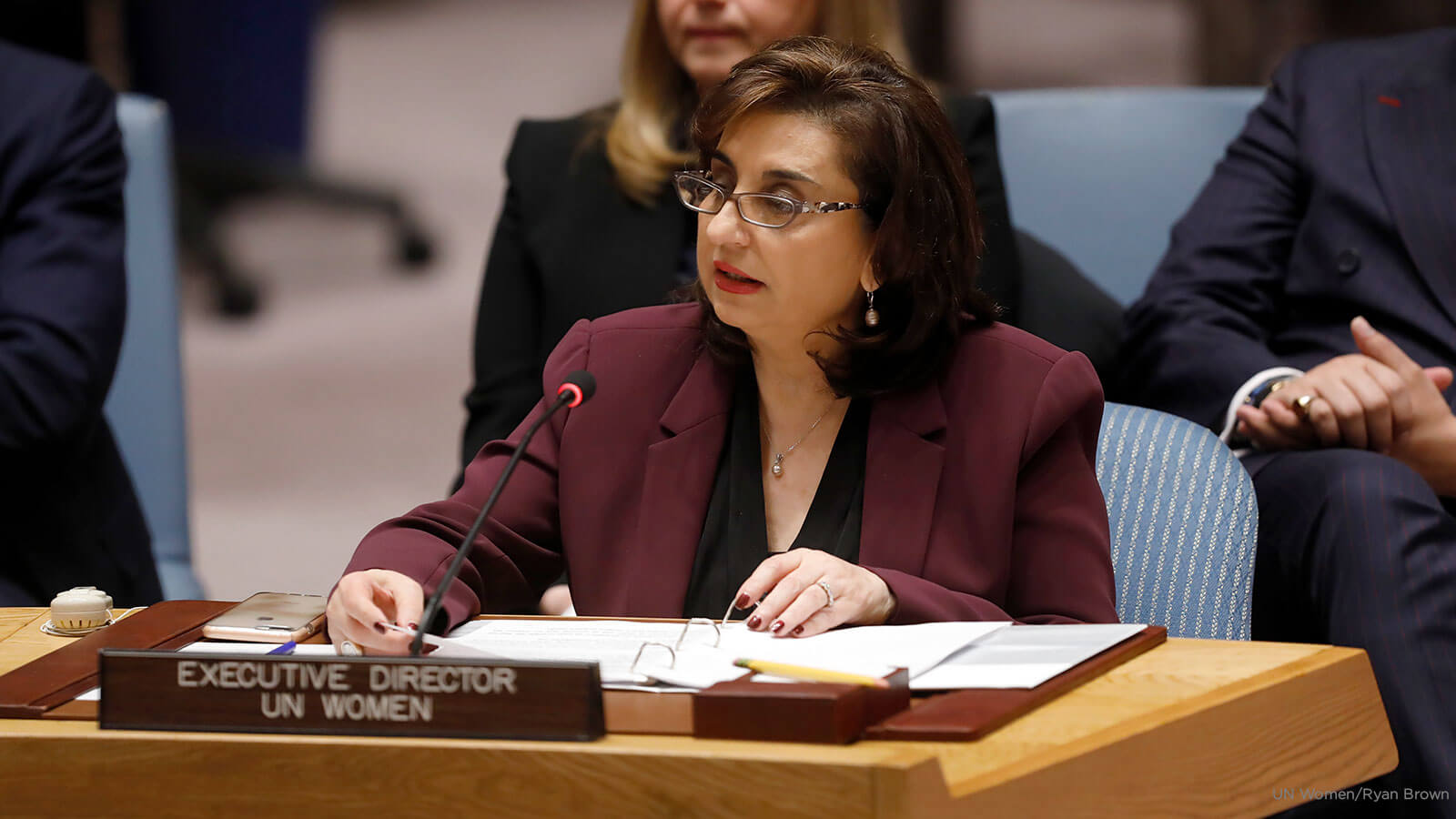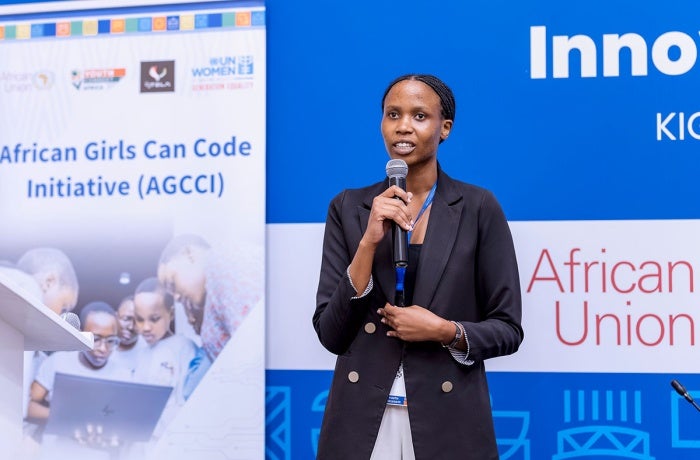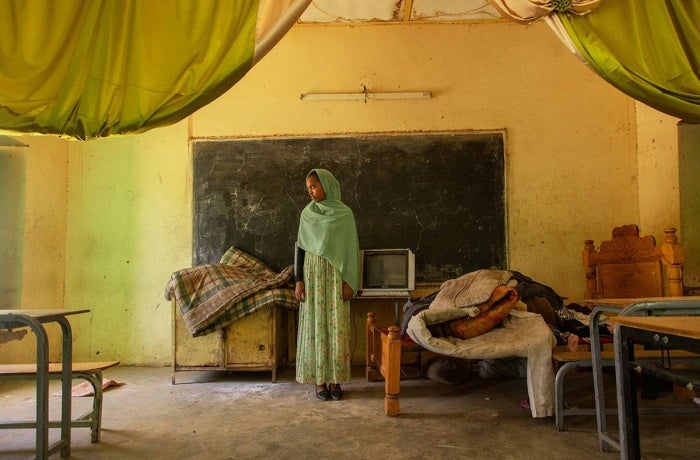Speech: Seize the opportunity for decisive action in Somalia
Speech delivered by Ms. Sima Bahous, UN Under-Secretary-General and UN Women Executive Director, to the UN Security Council meeting on the situation in Somalia, 22 February 2023.
[As delivered]
The last time I was in this chamber was five months ago to present the Secretary-General’s annual report on women, peace, and security. You may recall that my main message that day was that we are sliding backwards, rather than making progress. That global trend plays out in Somalia too.

As we have just heard, the projections in Somalia are dire. In the last weeks alone, nearly 200,000 people have been displaced from Laascaanood, more than 60,000—mainly women and children have fled to neighbouring Ethiopia. The ongoing drought is expected to render half the population food-insecure by mid-2023 and place the country at increased risk of famine. The last famine declared in Somalia, in 2011, killed a quarter of a million people.
This situation exacerbates gender-based violence.
In the last few years, both in your deliberations and in your decisions on Somalia, Council Members have raised the importance of the 30-per-cent quota for women and new legislation on sexual violence. These two issues have been a top priority for the United Nations in Somalia and in Headquarters, including the two visits by the Deputy Secretary-General.
Women’s political participation and leadership is a pre-requisite for more inclusive societies, for finding solutions to a lasting peace and to achieving sustainable development. And yet, the quota in Somalia was not met, women’s representation fell, sexual violence has increased, and the Sexual Offences Bill adopted unanimously by the Council of Ministers five years ago has still not been passed by Parliament. Instead, its opponents are pushing for alternative legislation that would legalize child marriage, omit the age of consent, reduce the types of admissible evidence, and take away the rights of survivors.
In the 2016 elections, women’s representation had jumped from 14 to 24 per cent and there was a commitment to reach 30 per cent in the next elections. Instead, the number of women in both chambers declined from 80 to 67. Every Somali woman from civil society that this Security Council has invited to brief in the last few years warned that this would happen, explained why, and provided details of the mechanisms that should be put in place for the 30 per cent to be met. Except for a partial reduction of candidate fees, these ideas were not implemented.
The decline in women’s representation is not limited to the results of the last election. Only 13 per cent of current members of the cabinet are women, despite advocacy efforts during government formation talks. In the elections in Somaliland in 2021, no woman was elected to the 82-seat House of Representatives, after rejecting a proposal for a 22-per-cent quota. In the South-West State Assembly, women’s representation declined too, from 22 to 15 per cent.
In Puntland and Hirshabelle, women’s representation rates remained in the single digits.
Conversely, rates of sexual violence have registered an alarming increase since 2020. They doubled then, compared to 2019. And they have continued to rise, as the worst drought in many decades is having a devastating impact on all Somalis, and women and girls are disproportionately impacted.
CARE International recently found a 200-per-cent increase in gender-based violence cases among people displaced by the drought compared to the previous year. In our own recent assessment on the impact of the drought, we found that women take on increased economic burdens, skip meals, find themselves separated from or abandoned by their husbands, and are more vulnerable to sexual assault as they travel longer distances to fetch water and firewood.
Yet, much of this goes unpunished. Our own data indicates that 80 per cent of SGBV [sexual and gender-based violence] cases do not reach the judiciary, and when they do, they are often met by male judges in a system where less than one per cent of judges are women.
And still, we hear that women and girls are not prioritized in aid distribution and local women’s organizations rarely get any funding. As donors and the United Nations worry about aid diversion and corruption, I would ask, where are the women in camp management? Globally, we are also sliding backwards on that score. From 2020 to 2021, there was a decrease in the participation of women in leadership and management structures in refugee and IDP [internally displaced persons] camps.
But this cruel violence against women and girls in Somalia is also very much linked to the conflict, both with Al-Shabaab and the Islamic State and linked to inter-clan disputes. Al-Shabaab continues to abduct women and girls, to force families to give them their daughters to marry, and to occupy hospitals and maternity wards.
Somali women are strong and resilient. But they pay the ultimate price for defending their rights. Al Shabaab has conducted many attacks to disrupt the parliamentary election. Its deadliest one targeted a bright young woman, Amina Mohamed Abdi, who had won a seat in Parliament at a very early age, in defiance of her own clan’s elders, and was campaigning again. Almost 50 people died in that attack, only 11 months ago. A few months earlier, Al Shabaab killed Hibaq Abukar, an adviser on women’s affairs in the office of the Prime Minister. They target women activists and women working in local and national politics. In recent months, Sadia Samatar, the first woman to occupy the position of Deputy Speaker of Parliament, received death threats for speaking up to support legislation that was more favourable to women’s rights. In addition, women civil society organizations are facing threats that thereby attempt to control the agency and voice of women.
Despite the prevalence of sexual violence committed with high levels of impunity and targeted attacks against women in public life in Somalia, none of the listings of the Sanctions Committee in Somalia since 2014 mention sexual violence or women’s rights, including for the three Al-Shabaab individuals added in 2021. These sanctions continue to be gender-blind.
Excellencies, you have repeatedly called for women’s meaningful participation. But we need you to demand it and be more specific about what you mean and what you expect. That includes participation not only in elections, but also in the stabilization agenda that is a key current priority for the Federal Government and Federal Member States of Somalia. It includes participation in the civil service, the constitutional review, the reforms of the justice and security sectors, and all efforts related to peacebuilding, state-building, preventing violent extremism, early warning, transitional justice, and humanitarian aid.
It is only when women are included in all areas of public life, that we will have a chance at peace and at ensuring that we support the rebuilding of a society that is resilient to future shocks. By doing that, you will be amplifying the voices in Somalia fighting for these goals. This includes the Government, as those are the goals of the first National Action Plan on Women, Peace and Security adopted by the Government half a year ago, supported by UN Women, and the local action plans that we are working on for five federal member states and Banadir District.
Most importantly, we must continue to protect the space for independent civil society. They are on the frontlines of this fight, risking everything they have. Their patriotism should be celebrated and, most significantly, supported, both politically and financially, in any way you can. You have an opportunity to take decisive action, and to stand with the women and girls of Somalia at this critical juncture. I urge you to seize this opportunity.
I thank you.









